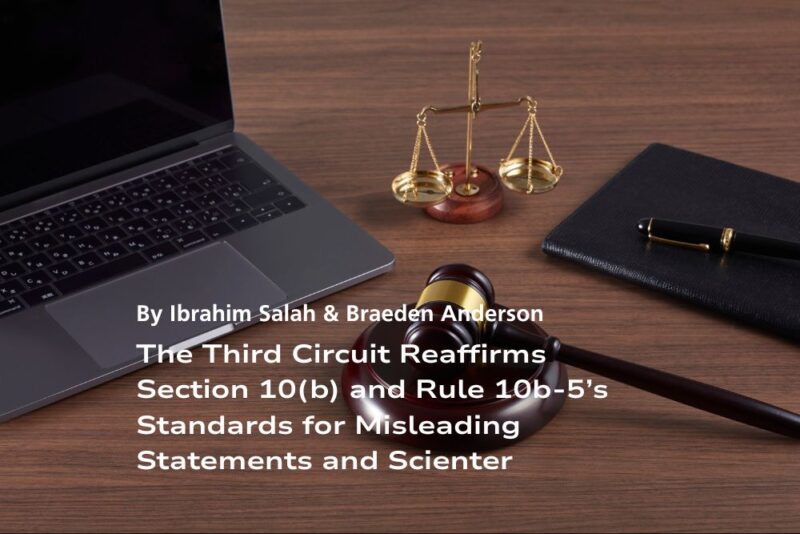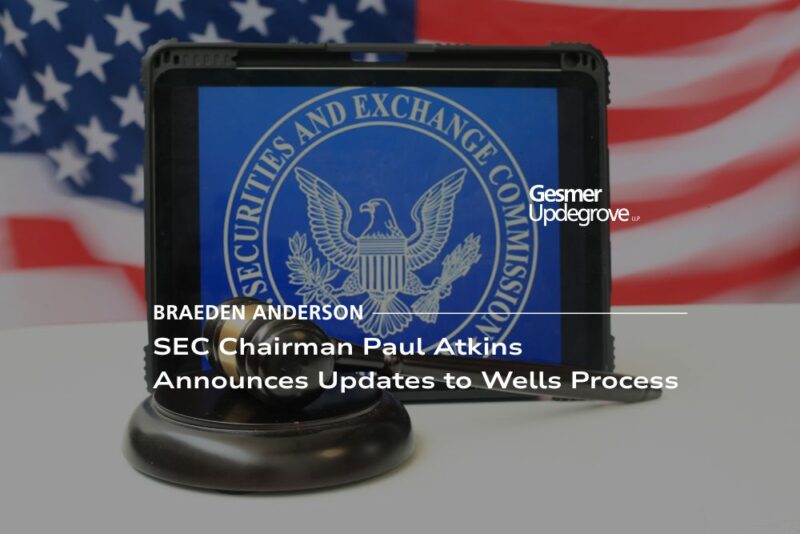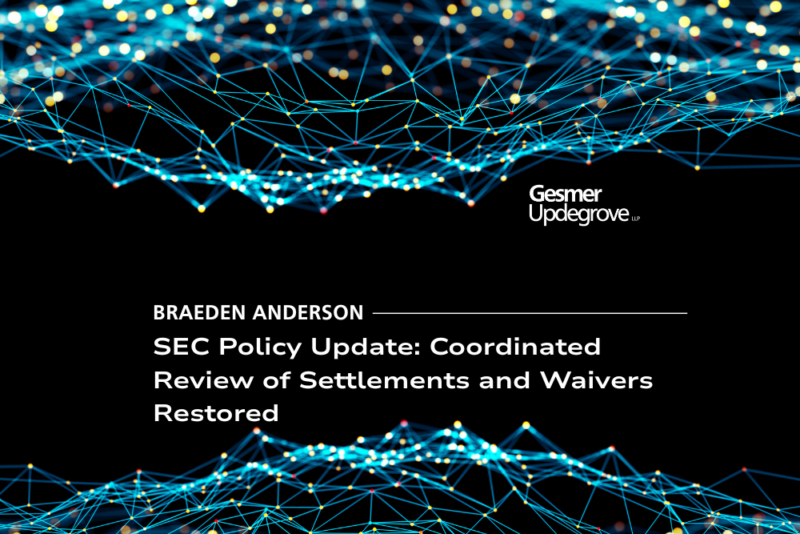
By: Braeden Anderson
SEC Chairman Paul S. Atkins has signaled a shift in how the Commission approaches the Wells process, announcing a series of procedural refinements aimed at standardizing and clarifying how the SEC handles pre-enforcement notice and response.
In his keynote address at Fordham Law School’s 25th Annual A.A. Sommer, Jr. Lecture on Corporate, Securities, and Financial Law (October 7, 2025), Atkins described these changes as necessary to preserve fairness, transparency, and efficiency in the SEC’s enforcement program.
As many of you know, for decades, the Wells process (named for the 1972 Wells Committee Report) has served as the SEC’s mechanism for notifying potential respondents of staff-recommended charges and allowing them to respond before the Commission votes. It is, in many respects, the SEC’s due process checkpoint. [1] Atkins reaffirmed that purpose, calling the Wells process “a cornerstone of fairness” and emphasizing that it “should be viewed as an extension of due process and fundamental constitutional rights.” [2]
These remarks captured the following procedural changes:
- A four-week minimum response period for Wells submissions, replacing the ad hoc timelines that often left respondents scrambling.
- A commitment to greater disclosure in Wells notices, including access to key evidence and testimony, allowing respondents to meaningfully address the staff’s proposed findings.
- Reaffirmation of Commissioner-level review, ensuring that all Wells submissions, even in settled or expected-to-settle cases, reach the Commissioners themselves rather than being filtered at the staff level.
Atkins’ reforms reflect a broader pattern of process-focused regulatory moderation. Throughout his tenure, both as Commissioner in the early 2000s and now as Chairman, his approach has emphasized disciplined procedure over reactive enforcement program.
A more standardized Wells process should allow companies and individuals to engage with the SEC in a more transparent, orderly manner and, in some cases, to resolve matters prior to formal proceedings. [3] If executed properly, these changes should enable the SEC to focus its resources where they matter most while allowing good actors to demonstrate compliance before reputational harm occurs. As Chairman Atkins put it, “Ours should not be a ‘gotcha’ game.” [4] He cautioned that rewarding staff solely for case volume risks incentivizing enforcement for its own sake, rather than encouraging the careful, calibrated application of law and policy.
Contact Us Today:
Collectively, these developments suggest a Commission seeking to institutionalize discipline within the enforcement process, balancing investor protection with predictability and procedural transparency. That perspective has renewed relevance in light of recent Supreme Court decisions, including Lucia v. SEC (2018) and SEC v. Jarkesy (2024), which have underscored constitutional and structural limits on the agency’s administrative authority. [5] [6]
Related Development: In a related procedural move, Chairman Atkins also announced the restoration of simultaneous consideration of settlement offers and collateral waiver requests. We covered that companion policy in a separate analysis here. [7]
References
[1] Report of the Advisory Committee on Enforcement Policies and Practices (June 1, 1972).
[2] Atkins, Paul S., “Keynote Address at the 25th Annual A.A. Sommer, Jr. Lecture on Corporate, Securities, and Financial Law,” SEC (Oct. 7, 2025).
[3] SEC Division of Enforcement Manual (2023), §2.5 (“Wells Process”).
[4] Atkins, supra note 2.
[5] Lucia v. SEC, 138 S. Ct. 2044 (2018).
[6] SEC v. Jarkesy, 603 U.S. (2024).
[7] SEC Policy Update: Coordinated Review of Settlements and Waivers Restored, Braeden Anderson, Gesmer Updegrove LLP,
Meet The Authur
Check Out Our Latest Publications:
- SEC CHAIR OUTLINES PLAN TO BRING CLARITY TO DIGITAL ASSET OVERSIGHT

- CRYPTO TAX: YEAR-IN-REVIEW

- The Third Circuit Reaffirms Section 10(b) and Rule 10b-5’s Standards for Misleading Statements and Scienter

- SEC Chairman Paul Atkins Announces Updates to Wells Process

- SEC Policy Update: Coordinated Review of Settlements and Waivers Restored

- SEC Provides Key Update on Treasury Clearing Rule Implementation

